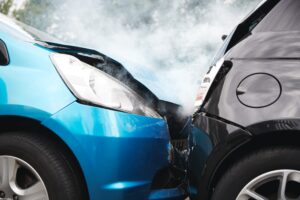
While workers’ compensation typically covers many of these accidents, not all work-associated vehicle mishaps qualify. As an experienced workers’ compensation lawyer will tell you, the benefits of workers’ compensation are exclusively available to employees who experience an injury (or fall sick) during the course of employment while executing work-related tasks.
Defining a Work-Related Vehicle Accident
For vehicle accidents to be considered work-related, the employee involved must have been using the vehicle for work purposes at the time of the incident. This includes activities like making a delivery, going for a sales call, running a work-related errand at the behest of a supervisor, traveling between work sites, or traveling for work-related purposes for which they receive compensation.
Employees such as taxi drivers, truck drivers, and delivery drivers, whose primary job function involves driving, are typically covered by workers’ compensation should they sustain injuries from an accident while performing their duties.
Exclusions and Exceptions in Workers’ Compensation
However, certain situations render car accidents ineligible for workers’ compensation. Specifically, accidents that occur outside the scope of employment do not qualify for benefits. This generally encompasses accidents that happen while employees are commuting to and from work or during an unpaid lunch break.
An exception may be made in cases where the employee was operating a company vehicle or performing a work-related errand. Likewise, if the employee was serving a dual purpose (driving for both personal and work-related reasons) or was on company property, workers’ compensation could apply.
The No-Fault System and Its Implications
A crucial aspect of workers’ compensation is its no-fault system. This means that even if the employee is responsible for an accident, they can still receive benefits, provided the accident occurred within the scope of their employment.
However, typically it is an exclusive remedy, which might prevent the employee from pursuing separate legal action. A seasoned workers’ compensation attorney can provide guidance on whether a personal injury lawsuit against a negligent driver responsible for your accident is feasible.
With more than four decades of experience, PLBH excels in assisting employees in navigating the intricacies of the workers’ compensation system. We also have extensive expertise as personal injury attorneys, which equips us to approach these cases from multiple perspectives. To schedule a consultation with a workers’ compensation attorney, contact us today at (800) 435-7542.
